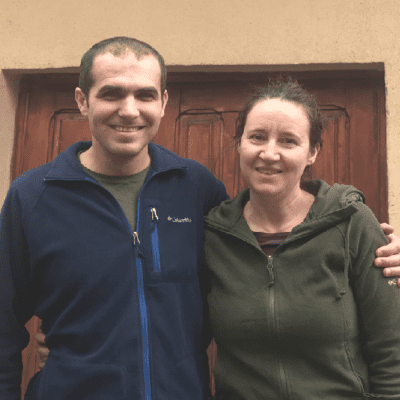God’s Table
When we speak of community, many different aspects come to our attention that capture our efforts. We have to accept that the idea of community changes over the years. For me, first, there was the youth summer camp community. Seeing and interacting with young Christians for a whole week, changed my life. I still remember, halfway through the week, saying, “Whatever they have, whatever they are, that is how I want my life to be, too.” Thus, I began to know God, to be known by God, to grow in this intimacy and in obedience to discover my calling in Him.
Next came the years when, as young adults, we wanted to change the world. Our notion of community and service included passion, energy and sacrifices. Later, we learned that planting seeds was our call. This calling produces humility, for what we wanted, in truth, was to make things grow fast, to harvest. We addressed each other, we challenged each other and we encouraged and supported each other; we accepted that what God does is for the long term and that we are just a small part of what He is doing. Finally, of course, starting our own families changed our understanding again; commitment and an active role became the embodiment of community life.
These changes—like any change—brought pain, suffering and brokenness. I had to reconsider “my” idea of community and “my” vision. A breakthrough occurred when I accepted what Peter Scazzero, in Emotionally Healthy Spirituality calls “ our need to be “alone together.” It would take pages to write about learning to be responsible, the discovery and use my gifts and to submit and accept help from others. When we speak about changes, Jean Vanier, in Community and Growth, presents us with one of the greatest challenges any Christian community faces in the world of today,
“In the past, Christians who wanted to follow Jesus opened hospitals and schools. Now that there are so many of these, Christians must commit themselves to the new communities of welcome, to live with people who have no other family, and to show them that they are loved and can grow to greater freedom and that they, in turn, can love and give life to others.”
The idea of community can take many shapes, but one of the temptations and one of the greatest dangers is when we, as part of a community, begin to “play god”, that is, when we convince ourselves that “we alone know what is best for the community, or for some members” (Scazzero).
In our modern world, with so many distractions, we can take this step by embracing simplicity, by focusing on what really matters. We can do this by actively remembering Jesus (see Allen Verhey, Remembering Jesus, 2005) and by rediscovering together our identity and our lives’ calling. “…However, such hospitality is more complex than welcoming ‘those people into our church’ or ‘making room at ‘our’ table. In the church, especially, it is not our table to which we welcome people; it is God’s table to which we come as equal.” (Christine D. Pohl, Making Room).
 ABOUT LAU
ABOUT LAU
Lau has been involved with WMF Romania for over 16 years now. Lau’s position mainly focuses on teaching the children, helping in the community care department and fixing WMF buildings whenever something breaks down. Lau’s hobbies include playing chess and reading.
CONNECT WITH LAU
lau.archip@wordmadeflesh.org
